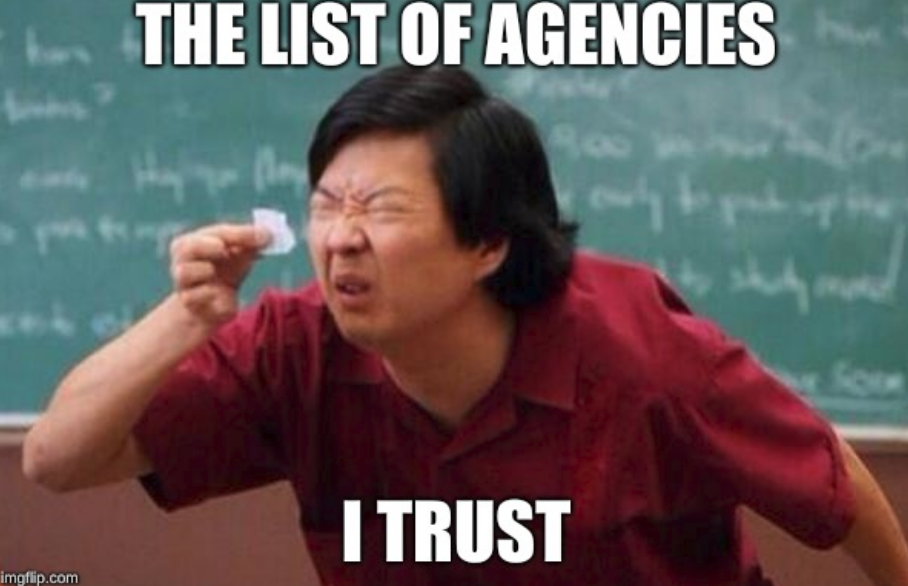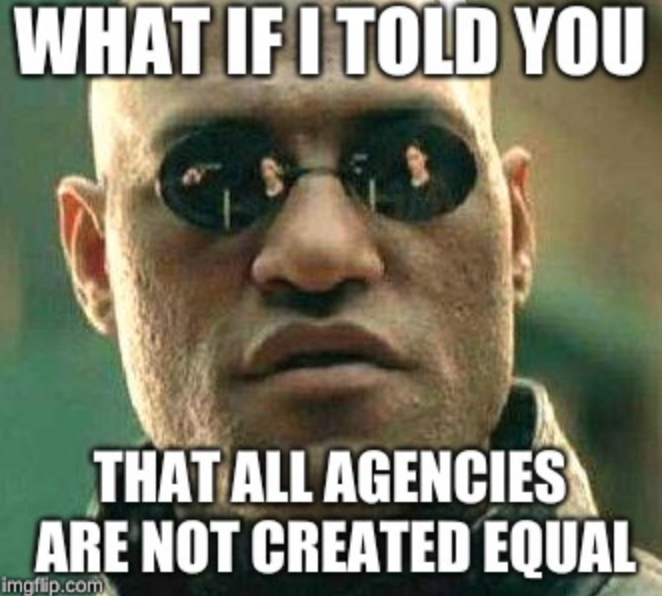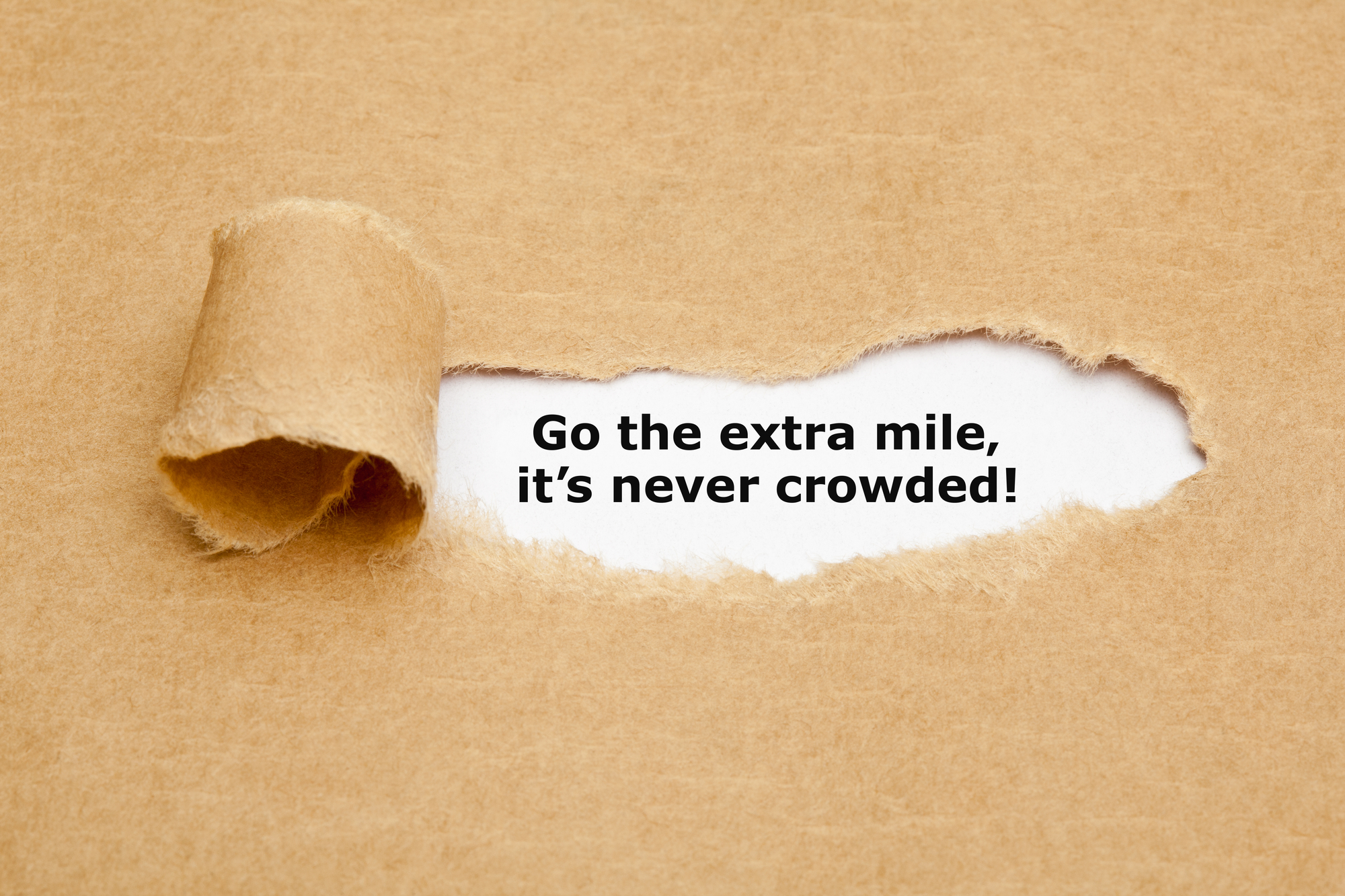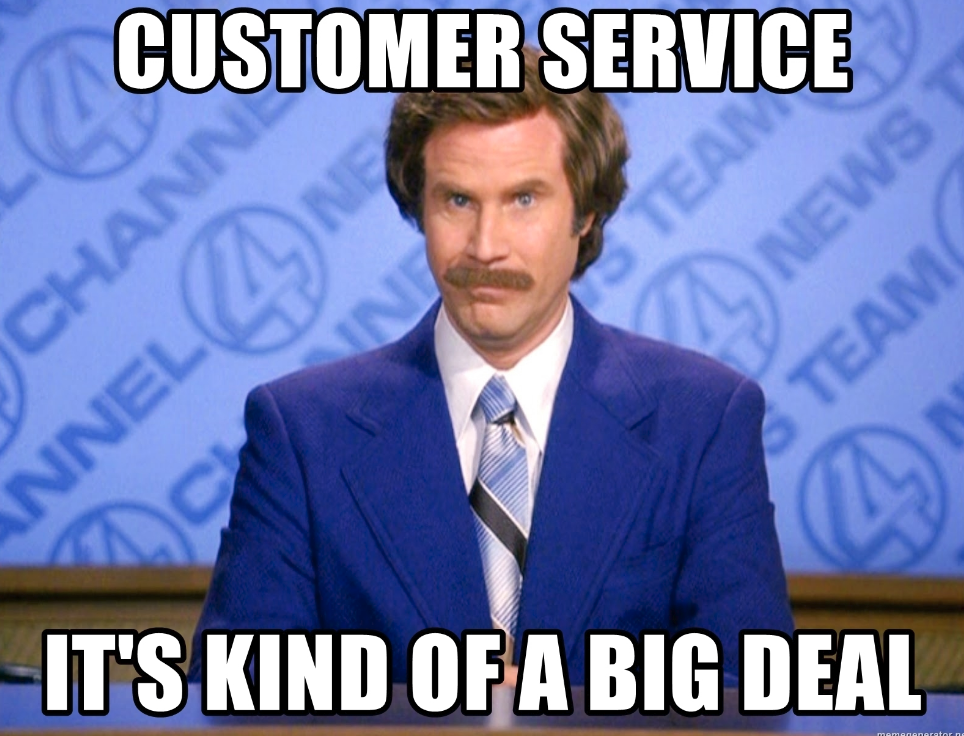Last week, we talked about the Snowball Strategy, where I argued it is THE key to growing your revenue over time in your freelancing, consulting, or agency/service-based business.
Client relationships are the foundation of the Snowball Strategy. You need to develop long-term relationships with your clients to ensure profitable growth in your business.
But what if your clients don’t trust you?
This month I’m back in Minnesota teaching at the University of St. Thomas, where the majority of my students are in-house marketing managers looking to grow their digital measurement skills (the class is called Data Driven Marketing).
When I asked my students why they were taking the class, the overwhelming reply was:
“I have always received reports and know the data inside is important, but I don’t always trust the metrics my agencies/analytics teams are sending me. But I have to trust them because they are the ones who control the data. If I take this class, I can tell if my agency is lying to me and give them better direction.”
OUCH!
If you are a service provider delivering this type of junk to your clients, I have some bad news for you. Your clients don’t trust you.
But even worse, they probably actively dislike you and are looking to replace you at the first opportunity.
Double OUCH!!!
So how do you build relationships with clients who secretly don’t trust you?
First, let’s understand why most clients are secretly distrustful of you.
Why your clients don’t trust you

The answer is simple; it’s because you’re a service provider. Agency businesses are notorious for trying to keep clients dependent on their services. It makes sense, right?
If client relationships are the key to long-term profitable revenue growth, and you can keep your clients dependent on you then that’s a good thing, right?
Not exactly.
That is not how you build client relationships that last. Trying to keep your clients dependent on your services because you assume they don’t know or will never know how to perform the functions you offer is pre-Internet thinking. It’s a win-lose relationship.
Your goal is not to keep clients dependent on your services.
Your goal is to provide such a valuable service to your clients that anywhere else they go they’re not going to get the same level of:
- Program results
- Customer service
- Knowledge and education
You can provide your clients all the “reports” in the world, and tell them it’s going great, but if you want to build long-term business relationships, you need to follow the Anti-E.G.O Framework and build trust.
The Anti-EGO Framework
The Anti-EGO Framework is about removing yourself (and your business) from the equation and going beyond what most freelancers, consultants, and agencies do for their clients.
You don’t have to offer free services or lose money as a service provider to make clients happy.
What you need is ensure that your clients have the BEST results and experience with you compared to any other service provider out there.
So what is the Anti-EGO Framework?
Educate your clients more than anyone else.
Go the extra mile.
Offer exceptional customer service.
If you follow the Anti-EGO framework, and you provide your clients with valuable services, then you’re going to have a precious client relationship that will Snowball into more significant and profitable projects. Did you see what I just did there?
Let’s break down each part of the framework:
Educate your clients more than anyone else.

Everyone can offer a service. Today, there are SO many freelancers, consultants, and agencies out there competing for attention that they all sound the same.
What is ONE way that you can be different?
You can better educate your clients on the services you offer than your competitors.
Beyond just offering a service, you need to educate your clients on how you are going to render the service. Explain to your clients in-detail the unique methods, strategies, and tactics that you’ll be implementing for them that no one else will.
At my agency, we have a proprietary method for delivering PPC services that have virtually guaranteed exceptional results for our clients over time.
Whenever we go into a sales meeting, our team makes it a point to show our potential new clients how we’re going to render the service better than anyone else by showing them our unique PPC methodology.
Remember, your clients are skeptical about how you render the service. Teach them how you’re going to do it, and explain to them in detail your process for your services.
If you deliver a monthly report as part of your service, don’t just email it to your client. Either schedule a meeting to walk your client through the report or create a video walking them through the report.
Yes, you will need to tell your clients about the bad and the ugly results if they happen. You need to be honest with them because there’s always an area of opportunity to do better.
Clients will trust you more if you tell them the pitfalls in performance and what you’re going to do about it.
This brings me to my next point in the Anti-EGO Framework.
Go The Extra Mile

Doing the unexpected leads to strong relationships with the people closest to you. Your friends, family, and yes even your clients.
Imagine you offered SEO services to your clients, and every month you submitted to them a monthly report on how their website’s traffic is increasing.
Now, imagine if you did something unexpected like offer them a free month of PPC services in November as a “Thank You” for being a client.
Do you think your competitors would do something like that? Probably not.
Most service providers are ego-centric and care about rendering the service, collecting the check, and then repeating the cycle. Seldom do service providers think of doing something that goes above and beyond the line of duty.
What can you do in YOUR business to go the extra mile for your clients? Think about it. Do something unexpected today for a client.
Offer exceptional customer service.

I’m talking about Ritz Carlton customer service here, not Value Inn. Have you ever heard of Value Inn? Exactly.
Everyone has heard of the Ritz Carlton, even though many haven’t stayed there, and there’s a simple explanation for that.
They offer the most exceptional customer service within the hotel industry. Their level of customer service is the “gold standard it’s the talk of legend.
Today, most customer service SUCKS. It does. Your clients are OK with decent customer service, but they would be ecstatic if your customer service were exceptional.
Your aim should be to offer exceptional customer service, and the ultimate test is when things don’t go according to plan.
For example, assume you offer PPC services to your client, and in May they’re dissatisfied because the campaign didn’t perform as well as you said it would. The client is upset.
Now you have a unique moment in the client relationship to do something special and deepen the client relationship by fixing the problem, or you can let your client slip away. It’s your choice.
By following the Anti-EGO framework, you remove yourself and your business from the equation and instead focus on doing what is right for your clients and yourself as well. It’s a win-win situation.
How do you over overcome the natural distrust new clients have when they start working with you? Let us know by leaving a comment below.
Summary
- Your clients don’t trust you because they assume you’re trying to keep them dependent on your services. The agency business is known for this.
- To build trust in your client relationships follow the 3-part Anti-EGO Framework.
- Educate your clients more than anyone else. Education can become your competitive advantage.
- Go the extra mile. Surprise your clients from time to time with something special. A free service, a discount, or a gift of some kind.
- Offer exceptional customer service. Clients want results, but when those results fall short – clients complain. When clients complain, it’s a real test of your outstanding customer service. How do you remedy the situation? Do you take ownership or blame your clients?

